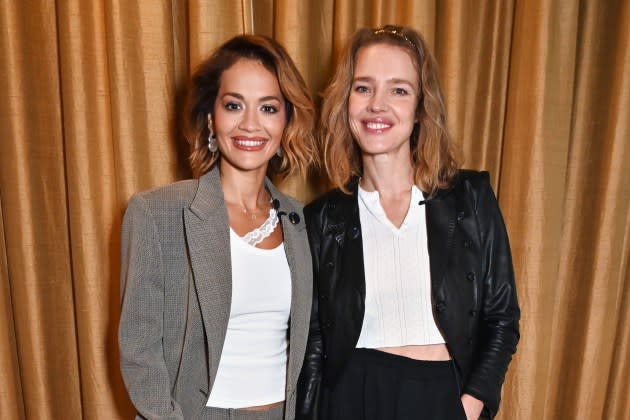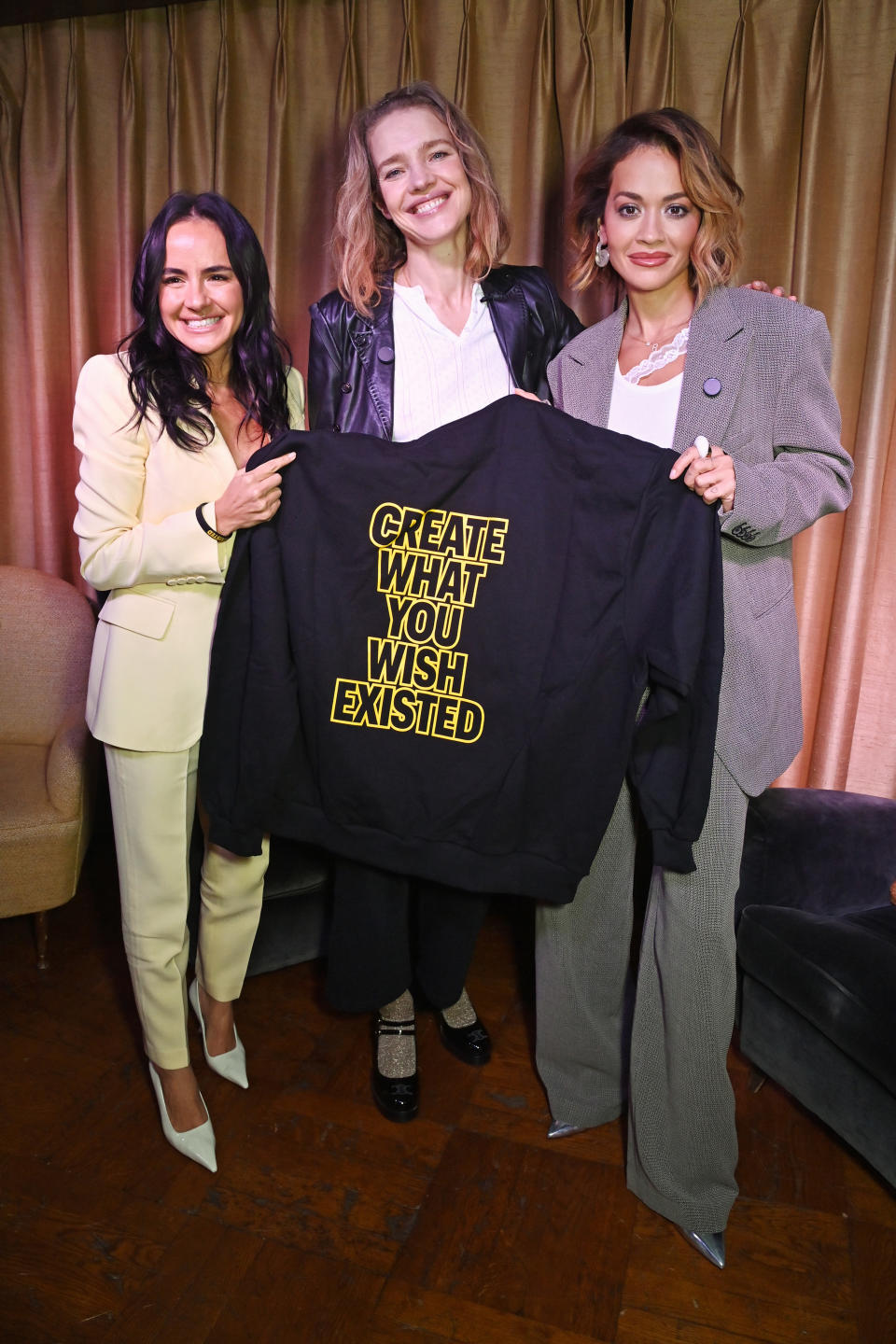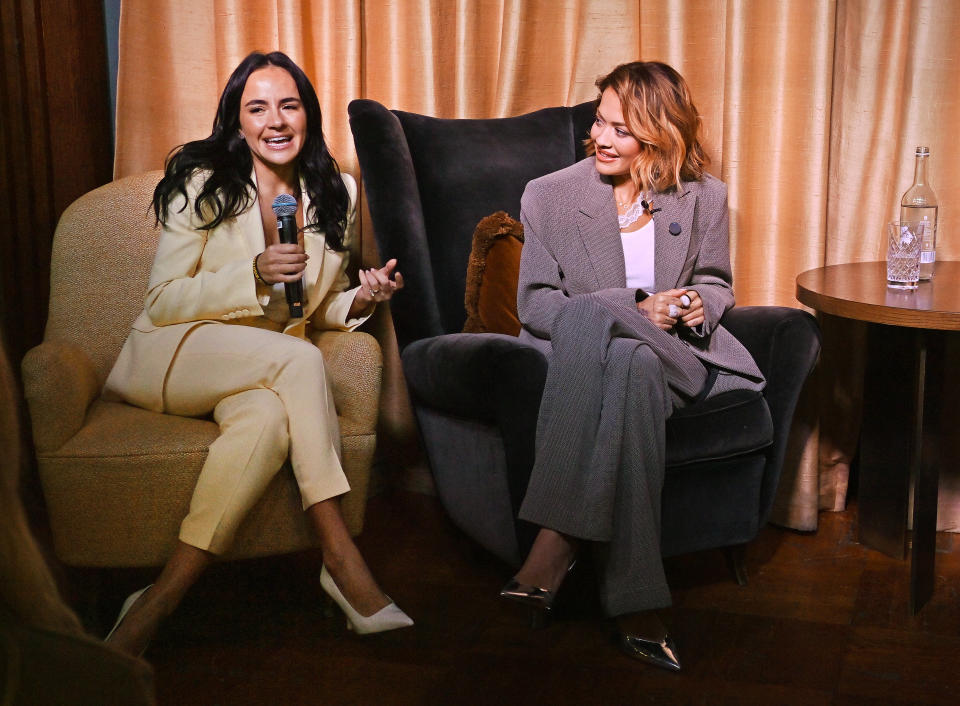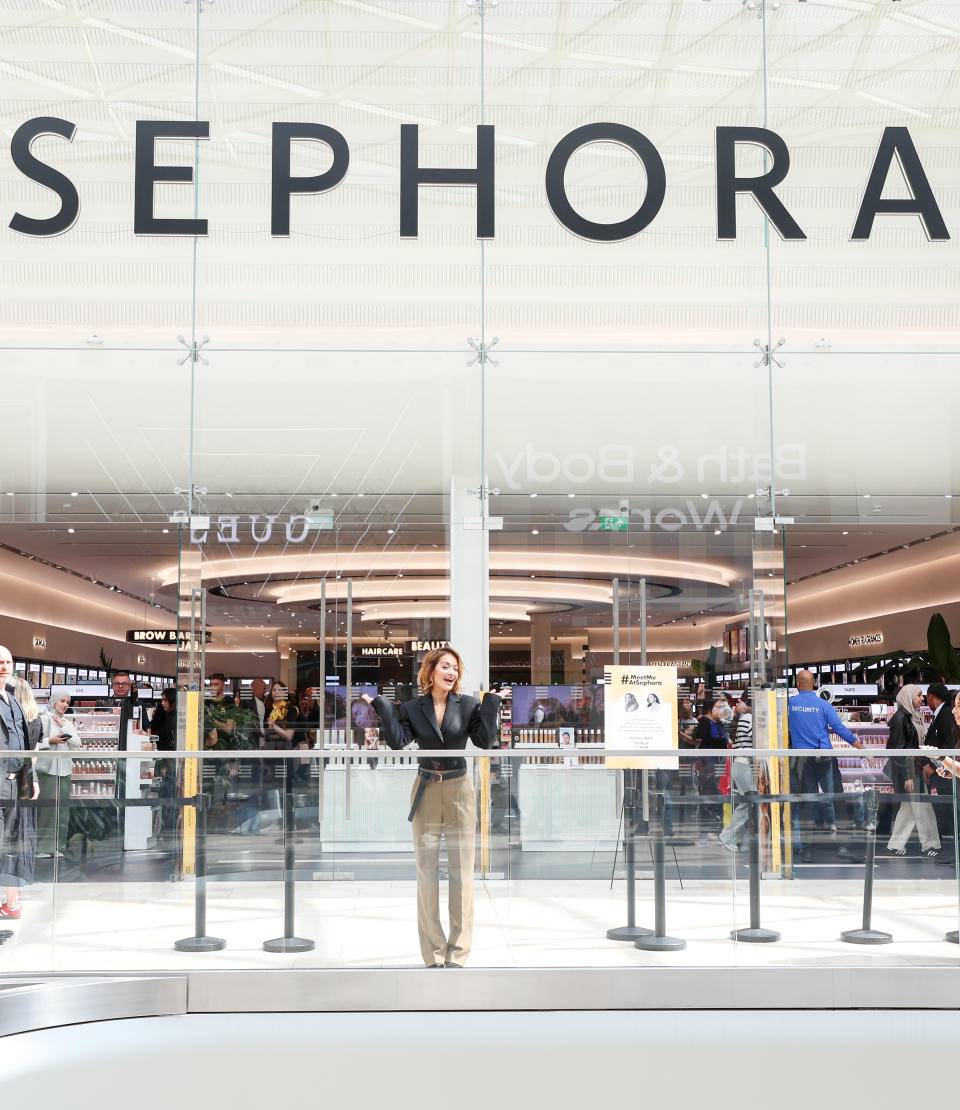Rita Ora Talks Impostor Syndrome and Hair Care With Natalia Vodianova
- Oops!Something went wrong.Please try again later.
- Oops!Something went wrong.Please try again later.

LONDON — British-Albanian singer Rita Ora dropped by member’s club White City House in Shepherds Bush Tuesday morning for an intimate conversation with model-turned-philanthropist Natalia Vodianova about her childhood, her relationship with fame, and her latest venture Typebea, a hair care brand she cofounded with Australian entrepreneur Anna Lahey.
Ora said she formed a friendship with Vodianova, who hosted the breakfast gathering via her event organizing platform Locals, over similar upbringings.
More from WWD
Arriving in the U.K. as a refugee at the age of 1 in 1990 during the Yugoslav wars, Ora learned about hard work from her parents, who had a strong “survival instinct” and who worked hard to be accepted into society and provide for the family, she said.
“It was hard because I remember them being very stressed, but they never really showed it. The thing I loved the most was that they never stopped us from dreaming. I loved singing, even if the environment wasn’t the perfect dream,” said Ora, adding that she would often sing at her dad’s pub when she was younger, hanging around Ladbroke Grove and Portobello Market, where her love for fashion, music and culture germinated.

According to the singer, her mother was the biggest supporter of her entertainment career.
“She loves everything to do with women who take control of their destiny and have an opinion. She was proud of me for being so bold and brave, because in this industry everyone has the same dream, but not a lot of people can make it a reality. My father was like, ‘Go to school and make sure you get your degrees,’ but my mom was like, ‘Let’s take her to a music school.’ But that was a very big risk for our culture. I was the kid that didn’t really follow those rules. But my mom supported me in those choices,” said Ora.
Coming from a background where one had to “work harder in the room to be heard or respected,” Ora confessed that she struggles between being “the kid that couldn’t say no to anything” to a female entrepreneur who fights for her true voice.
“I have to always remind myself of my story. Sometimes you get so overwhelmed with just trying to succeed in everything that you’re doing that you put all this pressure on yourself. I felt it yesterday. I don’t think I’ll ever stop feeling it. It’s this imposter syndrome that we all have,” she said.
“We’ve always put so much pressure on ourselves to deliver when we know that people are expecting things from us. You then say things that are sort of out of your character just to think that you’re fitting in…You do it for a decade and you’re exhausted. So I started to understand where my power lies,” added Ora.

The multiseason collaboration between the artist and Primark launched last year was a great example of that.
“I did a big deal with Primark, a brand that has been in my life for a very long time. It was a huge deal because they had never done anything like that with anyone before. Primark was my whole childhood. My school uniform, my underwear, my socks, my pajamas, and my mother’s chemotherapy lingerie when she had breast cancer. They have an incredible breast cancer line of bras. That’s my memory,” she said.
“My team was like, ‘How are you going to do this?’ And I said, ‘Well, because it’s true. It’s literally my story.’ It doesn’t matter what levels things are at, if you’re passionate about something, you should do that. That was really cool as a woman to have that belief and that opinion and not let people sway me,” added Ora.
Typebea, meanwhile, enables Ora to explore a new possibility outside of the show business.
Ora met Lahey, founder of Vida Glow — an ingestible beauty brand founded a decade ago — when the singer was a judge on “The Voice (Australia).” They later became friends and decided to launch a hair care brand centered around scalp-care actives and hair-nourishing ingredients meant to accelerate hair growth.
At the time, Lahey said she was surprised at “how warm and engaged and curious” Ora was about her entrepreneurial journey when she invited the singer to a launch event for Vida Glow.
“She asked for my phone number. I didn’t think she was going to actually text me. And the next day she did,” added Lahey.

Launching with four products — an overnight boosting peptide, a shampoo, a conditioner and a hydra-gloss treatment — the brand is available online and at Sephora in the U.K.
Ora said she has been using the peptide, and could see visible hair growth within three months.
“We just really want people to love the products and we hope it makes a difference. We hope people come up to us and say: ‘Oh, my goodness, you really helped me. You really saved my hair,'” said Ora.
Following a U.K. lunch event in Sephora in Westfield Shepherds Bush after the talk, Ora and Lahey will head over to the U.S. with activations planned in New York and Los Angeles.
Fundraising for the brand is on the agenda as well, Ora confirmed.
Best of WWD

